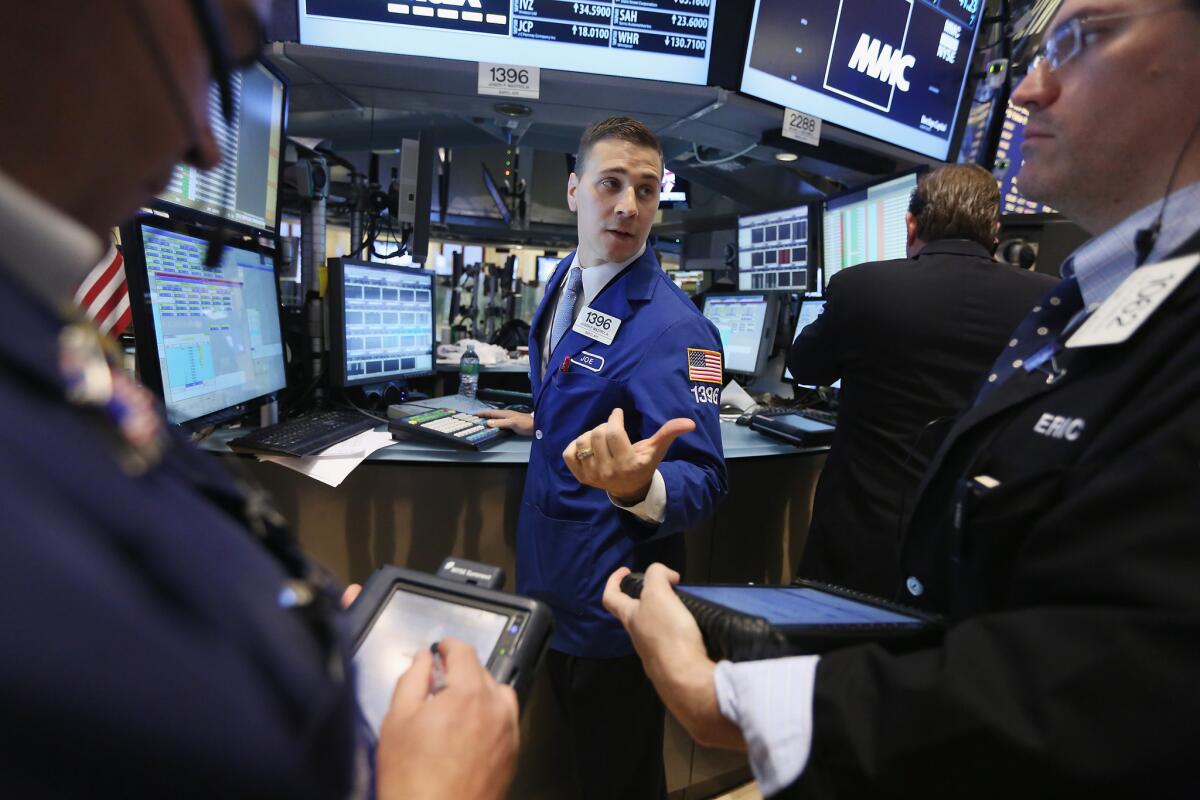As stocks hit new highs, is the market overheating?

- Share via
NEW YORK -- Wall Street will be watching Ben Bernanke’s testimony before Congress on Wednesday, hoping the Federal Reserve chairman will offer clues as to when the central bank may begin turning off its spigot of easy money.
Investors will also be scouring the Fed’s meeting minutes, which are due out Wednesday. The central bank’s stimulus programs have helped lift major U.S. equity indexes to historic highs this year, as low interest rates have made riskier investments like stocks more attractive.
But with the Dow Jones industrial average up 17% this year, investors may wonder: Is the stock market overheating?
Russ Koesterich, managing director and chief investment strategist at BlackRock, said in a note last week that the stock market was not in a bubble.
“Despite the rally, most traditional valuation metrics still suggest that stocks appear reasonably priced on an absolute basis and cheap compared to the alternatives, particularly cash and bonds,” Koesterich wrote.
Koesterich did cite one measure of stock prices signaling caution. The so-called CAPE (cyclically adjusted price-earnings) ratio indicates stock prices are “substantially above” historic averages, he wrote.
The current CAPE reading for U.S. stocks is 22.5, higher than the long-term average of 16.5. Still, Koesterich noted, the reading has been much higher -- 27 in mid-2007 during the last market peak, and 44 in late 1999 before the tech bubble burst. This indicator, he wrote, “is flashing yellow rather than red.”
Many market experts expect that a correction -- a decline in stock prices of perhaps about 10% -- to interrupt this year’s rally.
Barclays analysts said in a report last week that investors could see a pullback in stocks of 7% to 9% once the Fed begins tapering off its bond-buying program in response to the improving U.S. labor market.
ALSO:
Virgin America lets you buy other passengers drinks, make pals
3 big banks nearly halt foreclosure sales after U.S. tweaks orders
Higher consumer spending will offset sequester cuts, economists say
More to Read
Inside the business of entertainment
The Wide Shot brings you news, analysis and insights on everything from streaming wars to production — and what it all means for the future.
You may occasionally receive promotional content from the Los Angeles Times.










